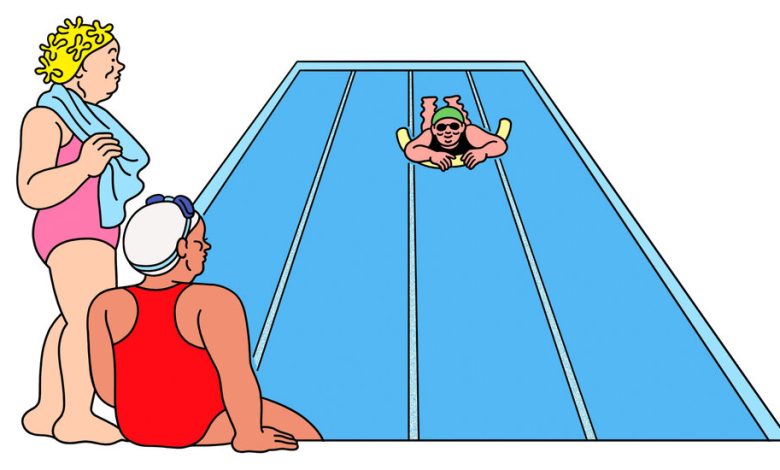Do I Tell the Woman With a Medical Condition She Can’t Swim With Us?

Do I Tell the Woman With a Medical Condition She Can’t Swim With Us?

By Kwame Anthony Appiah

Credit…Illustration by Tomi Um
A friend and I take a daily early-morning swim, usually all by ourselves, in a pool that has no lifeguard. A woman arrived the other day and announced that she loves to swim but only does so when another person can be present, because she recently had an EEG that revealed some abnormalities.
We, two ladies “of a certain age,” are very uncomfortable with this situation and worried because we don’t think we could handle an emergency in the pool. Our question is: What are our responsibilities to her in case of a crisis? Do we suggest that she not swim with us because we would be incapable of helping if something happened to her? Is there a better way to respond? — Name Withheld
From the Ethicist:
Don’t tell her she can’t swim with you. Just explain that you don’t think you would be able to perform lifeguard duties. Nobody is entitled to ask you for any heroics, but I don’t know that she even has this in mind — she may simply find it reassuring, psychologically, to know that you could use a phone and call for help if she were having distress. Whether she can safely swim is a question for her doctor; she may have been told that not swimming would be worse for her health.
Thoughts? If you would like to share a response to today’s dilemma with the Ethicist and other subscribers in the next newsletter, fill out this form.
Readers Respond
Last week’s question was from a person who donated clothes to a friend, a high school teacher in a low-income area, and later found out that the friend was selling the clothes on Poshmark. She wrote: “When I looked up some of my friends’ closets on the site, I discovered my teacher friend had posted and sold all the items I gave her for her students! Not just one or two items — all 20! What’s the right thing to do? Do I confront her, or do I ignore the fact that those kids never got the donated items? Once a donation has been made, what is the ethical expectation?”